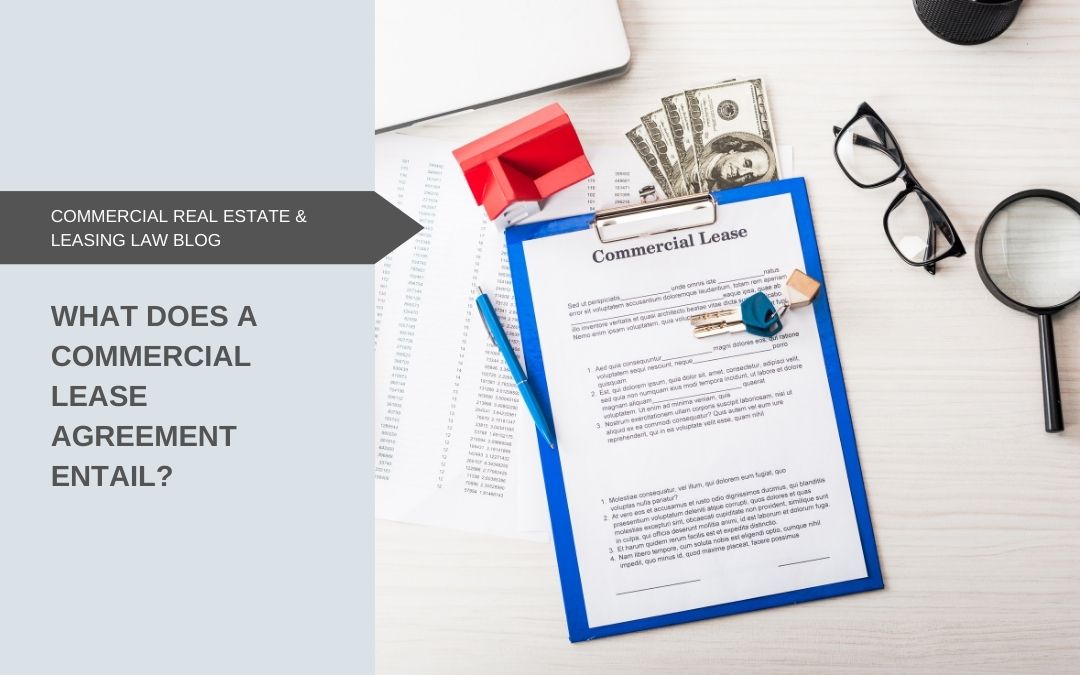A commercial lease agreement is a legally binding contract between a landlord and a tenant that outlines the terms and conditions governing the rental of a commercial property. It is a crucial document that protects the rights and obligations of both parties involved in a commercial lease. Here are the key elements typically included in a commercial lease agreement:
Parties Involved
The lease agreement identifies the landlord (property owner) and the tenant (individual or business entity) entering into the lease.
Property Description
The lease agreement provides a detailed description of the commercial property being leased, including its address, unit number, and any specific areas or amenities included.
Lease Term
This section specifies the duration of the lease, including the start date and end date. It may also include provisions for renewal options or early termination conditions.
Rent and Payment Terms
The lease agreement outlines the rent amount, how it will be calculated (e.g., monthly or annually), and the due dates for rent payments. It may also include information about late payment penalties, acceptable payment methods, and any rent escalation clauses.
Operating Expenses
Commercial lease agreements typically specify how operating expenses, such as property taxes, insurance, and common area maintenance fees, will be allocated between the landlord and tenant. This may include details about the tenant’s share of these expenses.
Use and Restrictions
The agreement specifies the approved use of the commercial space, outlining any restrictions or limitations on activities that the tenant may conduct on the premises. It may also include provisions regarding compliance with local laws, zoning regulations, and any required permits or licenses.
Maintenance and Repairs
The lease agreement establishes the responsibilities for maintenance, repairs, and improvements. It typically outlines the obligations of the landlord and tenant regarding upkeep, repairs, and who is responsible for the costs associated with these activities.
Alterations and Improvements
This section addresses whether the tenant is allowed to make alterations or improvements to the property and the process for obtaining prior approval from the landlord. It may include conditions for restoring the property to its original state at the end of the lease.
Insurance and Liability
The lease agreement may require the tenant to obtain specific types of insurance coverage, such as liability insurance, and provide proof of coverage to the landlord. It may also include provisions addressing liability for damages or injuries that occur on the property.
Default and Remedies
This section outlines the consequences of default by either party and the available remedies, such as notice periods, late fees, eviction procedures, or dispute resolution mechanisms.
Renewal and Termination
The lease agreement may include provisions for lease renewal or termination, specifying the notice period required and any conditions that need to be met for renewal or early termination.
Miscellaneous Provisions
The lease agreement may include other miscellaneous clauses, such as governing law, dispute resolution mechanisms (such as arbitration or mediation), confidentiality, subletting or assignment provisions, and any special considerations or agreements negotiated between the landlord and tenant.
It’s important for both landlords and tenants to thoroughly review and understand the terms of the commercial lease agreement before signing. Consulting with a real estate attorney can provide valuable guidance and ensure that the lease agreement accurately reflects the intentions and protects the interests of both parties.

